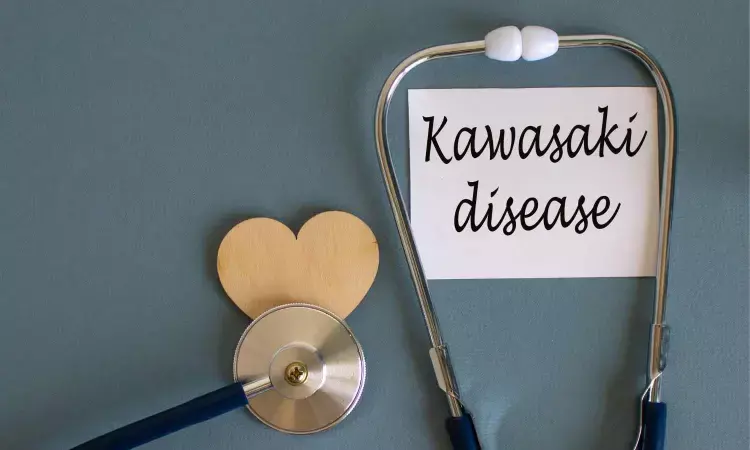- Home
- Medical news & Guidelines
- Anesthesiology
- Cardiology and CTVS
- Critical Care
- Dentistry
- Dermatology
- Diabetes and Endocrinology
- ENT
- Gastroenterology
- Medicine
- Nephrology
- Neurology
- Obstretics-Gynaecology
- Oncology
- Ophthalmology
- Orthopaedics
- Pediatrics-Neonatology
- Psychiatry
- Pulmonology
- Radiology
- Surgery
- Urology
- Laboratory Medicine
- Diet
- Nursing
- Paramedical
- Physiotherapy
- Health news
- Fact Check
- Bone Health Fact Check
- Brain Health Fact Check
- Cancer Related Fact Check
- Child Care Fact Check
- Dental and oral health fact check
- Diabetes and metabolic health fact check
- Diet and Nutrition Fact Check
- Eye and ENT Care Fact Check
- Fitness fact check
- Gut health fact check
- Heart health fact check
- Kidney health fact check
- Medical education fact check
- Men's health fact check
- Respiratory fact check
- Skin and hair care fact check
- Vaccine and Immunization fact check
- Women's health fact check
- AYUSH
- State News
- Andaman and Nicobar Islands
- Andhra Pradesh
- Arunachal Pradesh
- Assam
- Bihar
- Chandigarh
- Chattisgarh
- Dadra and Nagar Haveli
- Daman and Diu
- Delhi
- Goa
- Gujarat
- Haryana
- Himachal Pradesh
- Jammu & Kashmir
- Jharkhand
- Karnataka
- Kerala
- Ladakh
- Lakshadweep
- Madhya Pradesh
- Maharashtra
- Manipur
- Meghalaya
- Mizoram
- Nagaland
- Odisha
- Puducherry
- Punjab
- Rajasthan
- Sikkim
- Tamil Nadu
- Telangana
- Tripura
- Uttar Pradesh
- Uttrakhand
- West Bengal
- Medical Education
- Industry
Maternal folic acid supplementation during pregnancy tied to reduced Kawasaki disease risk during infancy in offspring: JAMA

Japan: A recent study published in JAMA Network Open has suggested a reduced risk of Kawasaki disease (KD) during infancy among offspring with increasing maternal folic acid levels via maternal folic acid supplementation during pregnancy.
The Japanese nationwide birth cohort study of 87,702 children revealed that the frequency of maternal folic acid supplementation and maternal serum folic acid levels during pregnancy were significantly associated with a reduced risk of Kawasaki disease in offspring during infancy.
Kawasaki disease is an acute systemic vasculitis that majorly affects young children and infants. A previous study has reported a possible association between maternal folic acid supplementation and Kawasaki disease, but no reproducible risk factors have been identified yet. Sayaka Fukuda, Yokohama City University, Yokohama, Japan, and colleagues investigate the associations of exposure to maternal serum folic acid levels and maternal folic acid supplementation with the onset of KD during infancy among offspring.
In the cohort study, the researchers used data from a nationwide birth cohort, the Japan Environment and Children’s Study, which enrolled children since 2011.
Maternal serum folic acid levels (≥10 ng/mL classified as exposed) were determined during the second and third trimesters and the frequency of maternal folic acid supplementation during the first trimester and during the pregnancy's second and third trimesters (once a week or more was classified as exposed).
The primary outcome of the study was the onset of Kawasaki disease in offspring up to 12 months of age. Odds ratios (ORs) for each exposure were estimated, and propensity score–adjusted logistic regression was conducted based on the sets of variables.
Based on the study, the researchers reported the following findings:
- The study population consisted of 87,702 children who were followed up for 12 months. Of these, 336 children developed Kawasaki disease.
- Mothers who took folic acid supplements (35.7% of mothers; mean age, 32 years) had higher serum folic acid levels than those who did not take supplements.
- Higher maternal serum folic acid levels were associated with a significantly lower risk of Kawasaki disease in offspring than lower levels (folic acid ≥10 vs <10 ng/mL, 0.27% children vs 0.41% children; OR, 0.68).
- Children whose mothers took folic acid supplementation during the first trimester had a lower prevalence of Kawasaki disease than children whose mothers did not take folic acid (0.34% of children versus 0.42% of children), although the difference was not statistically significant (OR, 0.83).
- Supplementation during the second and third trimesters was associated with a significantly lower risk of Kawasaki disease compared with no supplementation (94 of 0.30% children versus 0.43% children; OR, 0.73).
"Findings showed that higher serum folic acid levels (≥10 ng/mL) and maternal folic acid supplementation more than once a week during the second and third trimesters were tied to a reduced risk of Kawasaki disease in offspring during infancy" they concluded.
Reference:
Fukuda S, Tanaka S, Kawakami C, Kobayashi T, Ito S, Japan Environment and Children’s Study Group. Maternal Serum Folic Acid Levels and Onset of Kawasaki Disease in Offspring During Infancy. JAMA Netw Open. 2023;6(12):e2349942. doi:10.1001/jamanetworkopen.2023.49942
Dr Kamal Kant Kohli-MBBS, DTCD- a chest specialist with more than 30 years of practice and a flair for writing clinical articles, Dr Kamal Kant Kohli joined Medical Dialogues as a Chief Editor of Medical News. Besides writing articles, as an editor, he proofreads and verifies all the medical content published on Medical Dialogues including those coming from journals, studies,medical conferences,guidelines etc. Email: drkohli@medicaldialogues.in. Contact no. 011-43720751


